By Queen Kunde
In a bold show of support for the fight against gender-based violence (GBV), Nigeria’s Minister of Women Affairs, Imaan Sulaiman-Ibrahim alongside women’s rights groups such as the Nigerian Association of Women Journalists (NAWOJ), the League of Women Voters in Nigeria (NILOWV), and many others took to the streets of Abuja to mark the second day of the 2024 16 Days of Activism Against Gender-Based Violence. The roadwork, aimed at raising awareness about the pervasive issue of GBV, was not just a ceremonial walk but a statement of unity and purpose, demonstrating the shared commitment of Nigerian women and lawmakers to end the scourge of violence against women and girls.
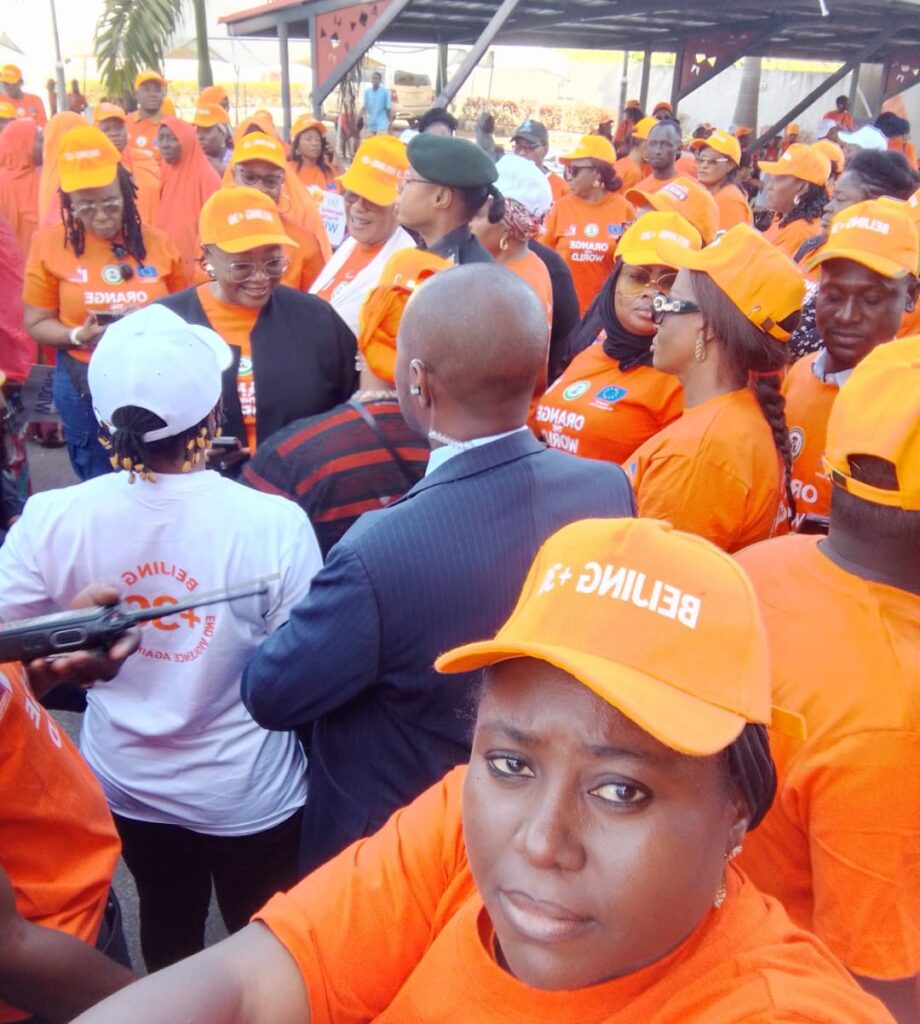
A Powerful Display of Solidarity
On the morning of the event, a vibrant crowd of women from diverse backgrounds gathered at the Ministry of Women Affairs Abuja, ready to march and raise their voices in solidarity. With banners and placards reading “End Gender-Based Violence Now” and “Say No to Domestic Violence,” the women’s groups were joined by representatives from key government agencies, civil society organizations, and the media, all coming together for a cause that transcends political, social, and economic boundaries.
The Minister of Women Affairs, Imaan Sulaiman-Ibrahim, who has long been an advocate for women’s rights, spoke passionately about the importance of the 16 Days of Activism, a global campaign that seeks to bring attention to the violence women and girls experience. For her, this year’s commemoration was particularly significant as the Nigerian government continues to ramp up its efforts to combat GBV through legislative reform, public education, and the creation of support systems for survivors.
“It’s imperative that we amplify the voices of survivors, educate our communities, and hold perpetrators accountable. This roadwork is not just about awareness, it’s about action. We are saying, together, that enough is enough. We will not tolerate the abuse of women in any form,” Imaan Sulaiman-Ibrahim remarked.
The Role of Women’s Rights Groups
Leading the charge alongside the Minister were women’s rights groups such as NILOWV and NAWOJ. These organizations have been pivotal in the fight against GBV in Nigeria, providing support, and advocacy for victims while raising awareness at the grassroots level.
Hon. Irene Awuna- Ikyegh, President of NILOWV, emphasized the importance of collaboration between government agencies and civil society in eradicating GBV. “While the government has made strides, there is still much more to be done. Women must be empowered with the right tools to report abuse, and we need a legal framework that guarantees swift justice for victims. This campaign is a reminder that gender-based violence is a crime that should not be tolerated,” she said.
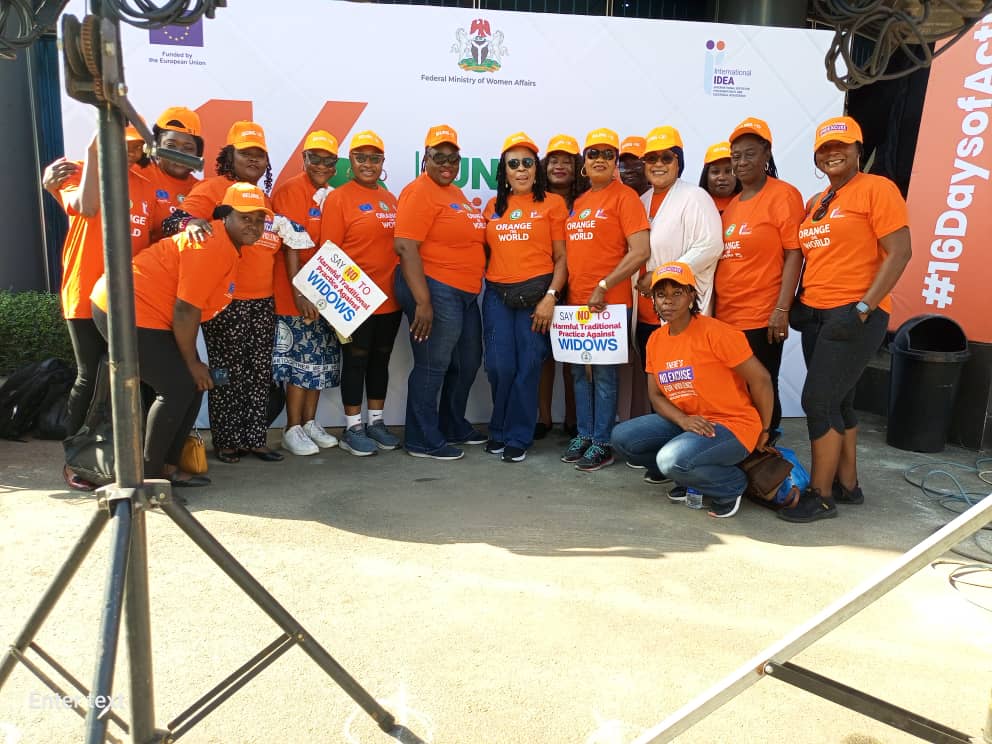
The Nigerian Association of Women Journalists (NAWOJ), also stressed the power of the media in shaping public opinion and influencing change. “As journalists, we have the responsibility to report not just the facts, but the truth behind the stories of gender violence that are often left untold. We will continue to hold the government accountable, amplify the voices of survivors, and ensure that the narrative is one of empowerment and justice,” they affirmed.
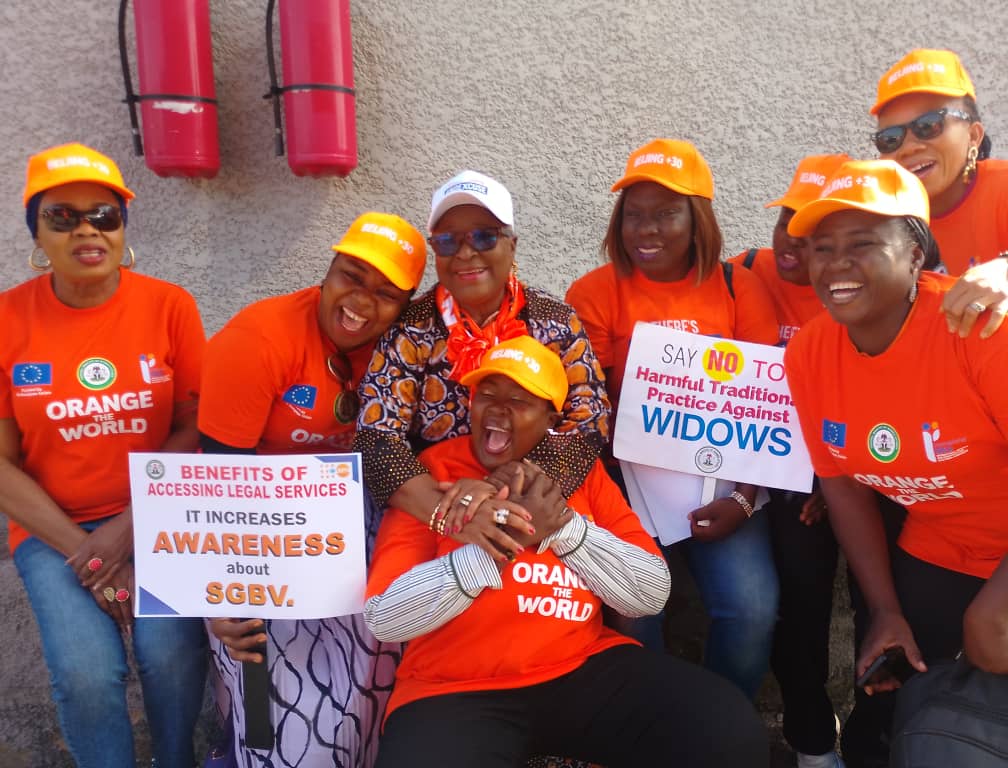
A Show of Political Support
One of the most significant moments of the day was the interaction between the Hon. Tajudeen Abbas, Speaker of the House of Representatives, who received the Nigerian Women at the National Assembly Complex where he pledged the National Assembly’s unwavering commitment to passing stronger legislation aimed at ending GBV in Nigeria. His presence added a powerful political voice to the proceedings and demonstrated the growing awareness and support from key lawmakers.
In his address to the crowd, Speaker Abbas made it clear that the National Assembly would play an active role in ensuring that legislative measures are put in place to curb the incidence of GBV. “The issue of gender-based violence is one that demands the attention of not only the executive but the legislature as well,” he stated. “We stand with the women of Nigeria in their quest for justice and equality, and the National Assembly is committed to passing and strengthening laws that will ensure the protection of women and girls from violence.”
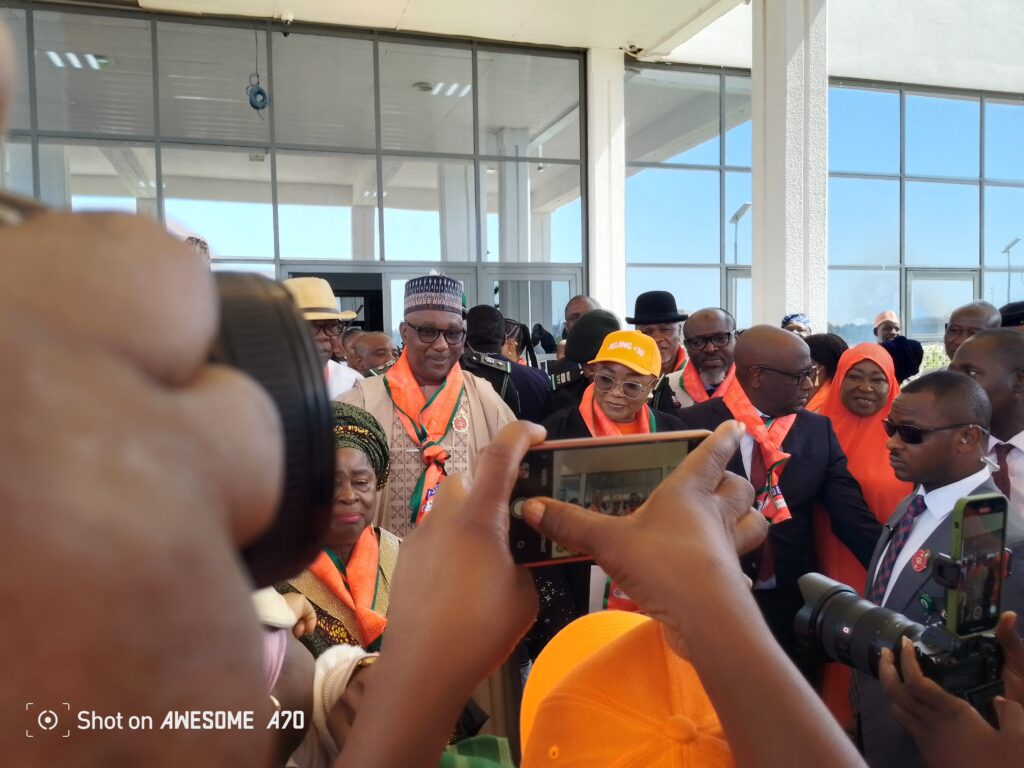
His statement resonated deeply with the crowd, who erupted in applause at the Speaker’s pledge. Speaker Abbas further promised to ensure that there is increased funding for GBV-related programs and that the legal framework would be reinforced to ensure swift justice for perpetrators. He also emphasized the need for a collective effort, saying, “This is not just the fight of women; it is the fight of every Nigerian who believes in justice and human dignity.”
The Speaker’s remarks were a welcome boost for the women’s rights groups present, many of whom have been calling for stronger laws and better enforcement of existing laws to tackle GBV in Nigeria. The Violence Against Persons (Prohibition) Act (VAPP Act) of 2015 was highlighted as a positive step forward, but many activists argue that implementation has been slow and inconsistent, with survivors often unable to access the justice system due to social, financial, and cultural barriers.
Breaking the Silence on GBV
The 16 Days of Activism against Gender-Based Violence is a global campaign that runs from November 25 to December 10, culminating in Human Rights Day. In Nigeria, the campaign has taken on added significance due to the rising prevalence of GBV across the country. According to reports from the United Nations, one in three women in Nigeria has experienced some form of physical, sexual, or psychological violence in their lifetime, a statistic that has shocked and saddened many.
The roadwork event served as a reminder that while progress has been made, the battle is far from over. Survivors of GBV still face immense challenges in seeking justice and support, and many continue to suffer in silence due to fear of retribution or societal stigma.
But despite these challenges, the roadwork demonstrated that there is hope. As more women and men from all walks of life join the fight to end GBV, the collective strength of their voices and actions is undeniable. From grassroots activists to high-ranking government officials, there is a growing movement that refuses to stay silent about the violence that continues to plague Nigerian society.
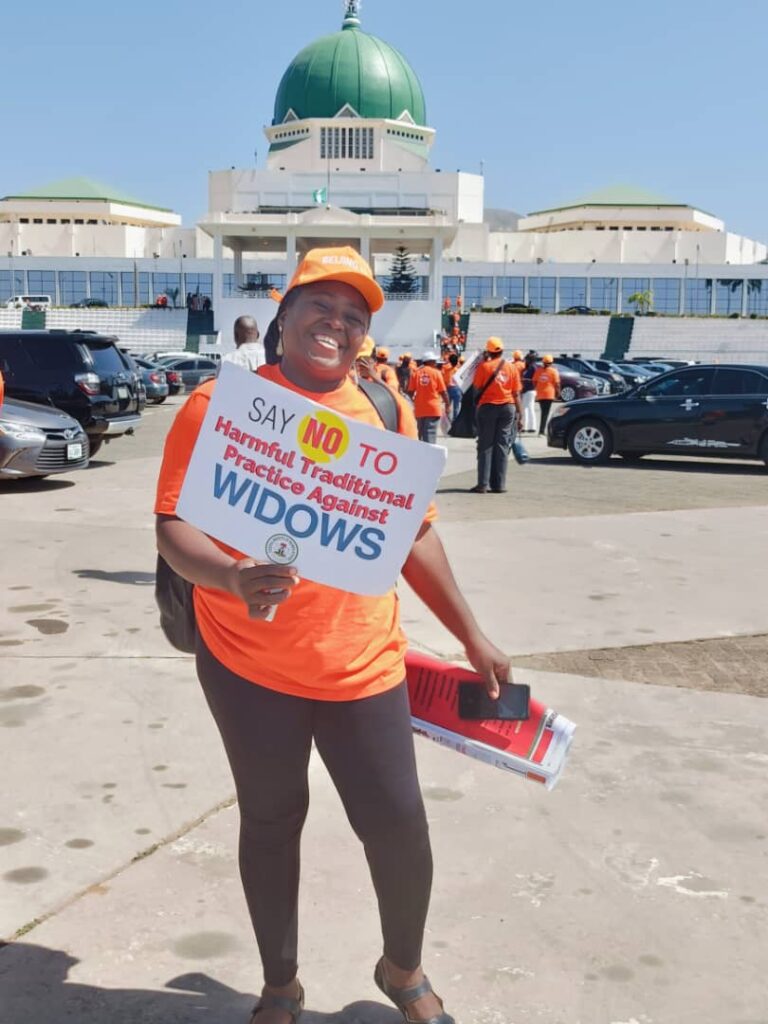
Looking Ahead
The march through Abuja was just the beginning. In the coming weeks, various events and activities will take place across the country as part of the 16 Days of Activism campaign. From rallies to sensitization programs, the fight against GBV will be at the forefront of Nigeria’s national agenda.
As Imaan Sulaiman-Ibrahim and Speaker Tajudeen Abbas have both stressed, this is a fight that requires the cooperation of all sectors of society—government, civil society, the media, and individuals. It is a fight for the rights of women and girls, for justice, and for a future free of violence and fear.
For the women’s rights groups like NILOWV, NAWOJ, and countless others who have been tirelessly advocating for change, the road to ending GBV in Nigeria is long, but it is a road they will continue to walk, with hope and determination.
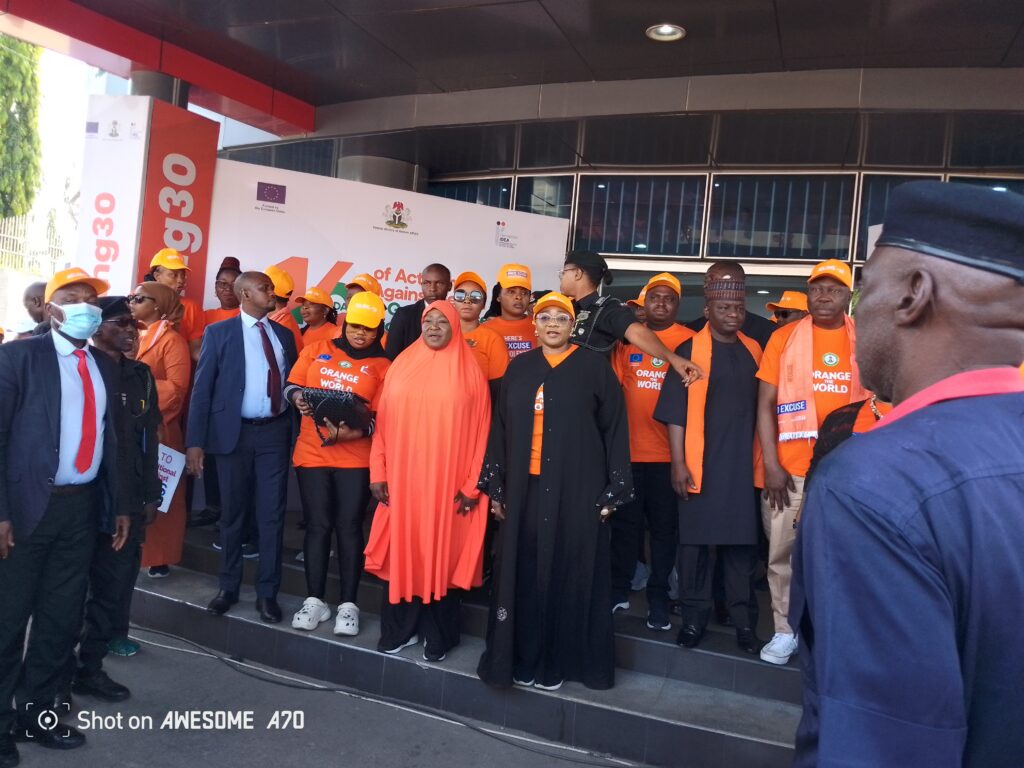
The 2024 16 Days of Activism has set a clear tone for the future: that the National Assembly with leaders like Speaker Tajudeen Abbas, they will be an ally in the struggle to create a Nigeria where every woman and girl can live free from violence and fear. As the event concluded, it was evident that Nigeria is slowly but surely moving toward a future where the voices of women are heard and their rights upheld. The battle against GBV is far from over, but with the combined efforts of government and civil society, victory is within reach.

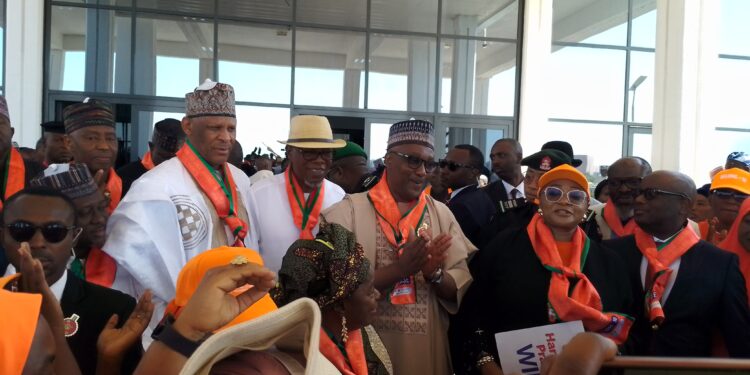

Discussion about this post